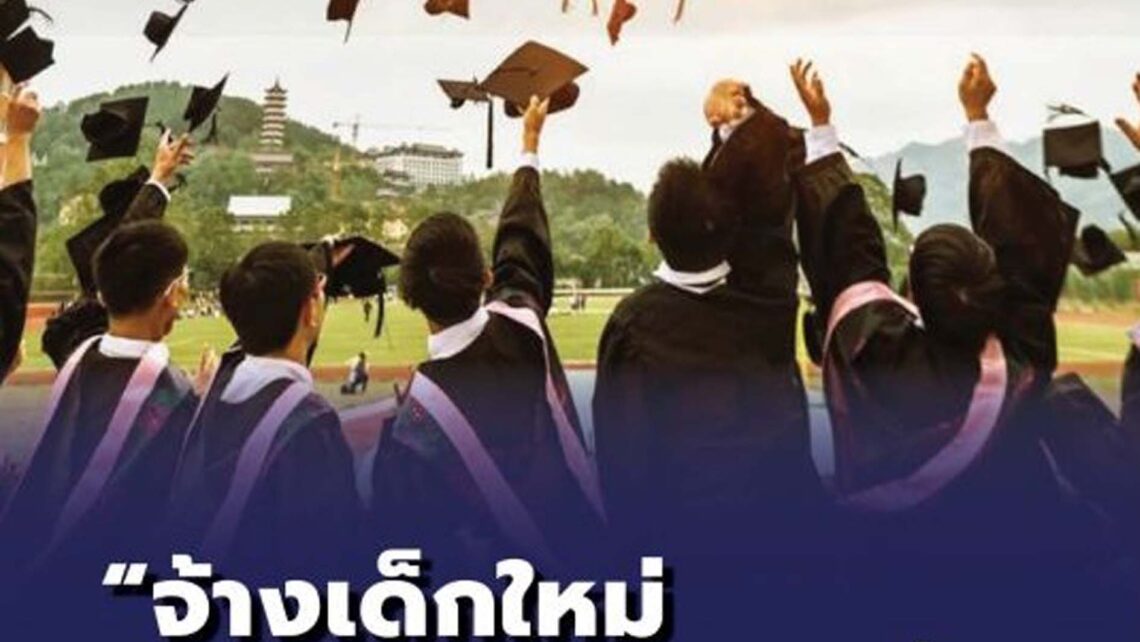Context: Due to the impact of COVID-19, Thailand’s economy shrank by approximately 6.6 per cent in 2020, causing nearly 700,000 Thai citizens to be unemployed. Times are tough for the unemployed, especially those that have just graduated. Around mid-2020, there were 525,000 new graduate students in Thailand, but only 25,000 positions in the job market. By the end of 2020, there were 300,000 more graduates entering the market than mid-year. With the second wave of infections in Thailand, competition in the job market is likely to be more intense, further increasing the difficulty for inexperienced graduates to find jobs.
Implementation of programme/ initiative: In order to create more job opportunities for new graduates and to reduce the financial constraints of private companies, Thailand’s Cabinet approved a one-year project in September 2020, which aims to subsidize a portion of the salaries of new graduates working in the private sector. The project has a budget of THB23.5 billion (USD0.8 billion), which will be allocated from the THB400 billion (USD1.3 billion) fund earmarked by the government for economic restoration and stimulus measures. The subsidies are up to THB7,500 (USD250) per person each month until September 2021. The applicants are required to be Thai nationals; to have graduated after 2019 with a bachelor’s degree, vocational certificate or a high school diploma; and to be no older than 25.
Main challenges: Although the project aims to help new Thai graduates, in 2020 only 57 per cent of them went to university, so there are still many unemployed young people unable to benefit from this project. Furthermore, there has been some concern that participating companies may lay off current employees to hire new graduates in order to get the available governmental funds. Moreover, due to the pandemic, many companies would prefer to wait for the economy to recover and hire people on long-term contracts, rather than hire graduates on the one-year contracts offered under the scheme.
Results achieved: During the first two months (October to November 2020) of the programme, there were 82,700 job positions posted by 4,400 companies. Around 53,700 new graduates had applied for the available jobs and 2,200 applications had already been approved. At the time of writing, the amounts have increased to 105,100 job positions posted by 7,600 companies, and 75,700 graduates have applied. The numbers are set to increase continuously.
Moving Forward: So far, the project has been successful at helping many students acquire job positions. However, more students are to graduate in 2021, and it is uncertain if the Thai government is to increase the project’s budget. Moreover, the requirements of applicants could be modified to include students lacking high school education, to assist lower-income students who are in significant need of help. In addition, the age limit could be increased or removed. Finally, it is uncertain whether or not the pandemic will be under control by the end of 2021, so the length of the project should be extended by another year to be of greater benefit.
Replicability: The COVID-19 pandemic has affected countries all across the world, and they all have their own economic recovery plans. Compared to other economic consumption and employment plans, this project focuses primarily on fresh graduates, who, though being essential future workers, are at a disadvantage in the job market. The project helps to make the job market more balanced. It benefits new graduates and gives them a greater chance to compete with those who already have work experience. Using a plan of this nature, governments can address youth unemployment, students can find jobs and the private sector can reduce certain financial constraints, making it a beneficial situation all round.
Acknowledgement:
This good practice was kindly prepared by Ms. Juanying Xie.
References:
https://thainews.prd.go.th/en/news/detail/TCATG201109002610319
https://www.bangkokpost.com/business/1977211/shouldering-the-burden
Project Details
Date: January 19, 2021
